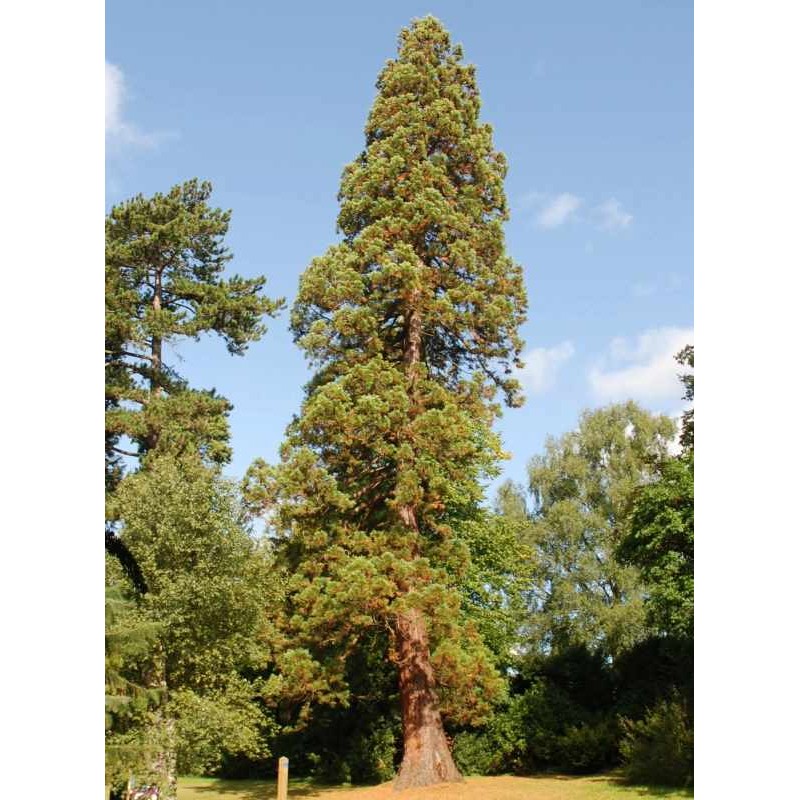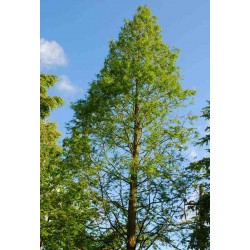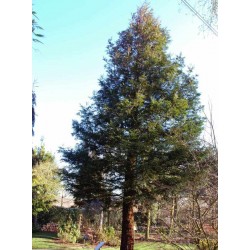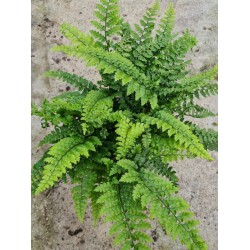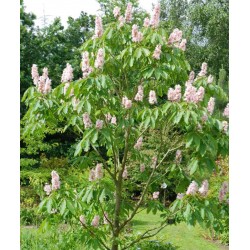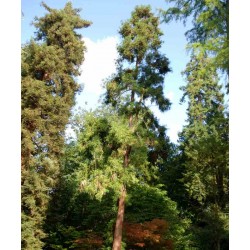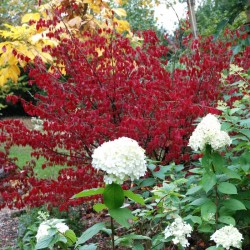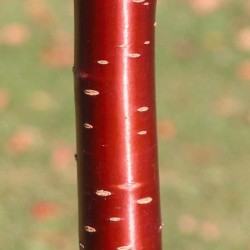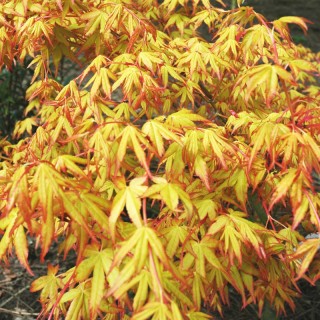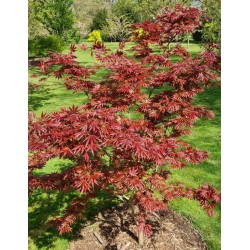- Home
- Offer - up to 30% off Selected Plants
- Trees & Shrubs
- Abelia
- Abeliophyllum
- Acer
- Acradenia
- Aesculus
- Ageratina
- Alnus
- Amelanchier
- Amelasorbus
- Amorpha
- Aralia
- Arbutus
- Aronia
- Asimina
- Atherosperma
- Aucuba
- Berberis
- Betula
- Brachyglottis
- Buddleja
- Buxus
- Callicarpa
- Calycanthus
- Camellia
- Caragana
- Carpinus
- Carya
- Caryopteris
- Catalpa
- Ceanothus
- Celtis
- Cephalanthus
- Ceratostigma
- Cercidiphyllum
- Cercis
- Chaenomeles
- Chimonanthus
- Chionanthus
- Chitalpa
- Choisya
- Cistus
- Cladrastis
- Clerodendrum
- Clethra
- Cleyera
- Colquhounia
- Coprosma
- Cornus
- Correa
- Corylopsis
- Corylus
- Cotinus
- Cotoneaster
- Crataegus
- Crinodendron
- Cytisus
- Daphne
- Davidia
- Decaisnea
- Desfontainia
- Deutzia
- Dichroa
- Diervilla
- Dipelta
- Dipteronia
- Disanthus
- Distylium
- Drimys
- Elaeagnus
- Eleutherococcus
- Embothrium
- Emmenopterys
- Enkianthus
- Escallonia
- Eucalyptus
- Eucryphia
- Euonymus
- Exochorda
- Fagus
- Fatsia
- Ficus
- Firmiana
- Forsythia
- Fothergilla
- Franklinia
- Fuchsia
- Gardenia
- Garrya
- Gaultheria
- Gleditsia
- Griselinia
- Gymnocladus
- Hakea
- Halesia
- Halimodendron
- Hamamelis
- Hebe
- Hedera
- Heptacodium
- Hibiscus
- Hippophae
- Hoheria
- Holodiscus
- Hovenia
- Hydrangea
- Hypericum
- Ilex
- Illicium
- Indigofera
- Itea
- Jasminum
- Juglans
- Kalopanax
- Koelreuteria
- Kolkwitzia
- Laburnum
- Laurus
- Lavandula
- Leptospermum
- Lespedeza
- Leucothoe
- Leycesteria
- Ligustrum
- Lindera
- Liquidambar
- Liriodendron
- Lonicera
- Luma
- Maackia
- Maclura
- Maddenia
- Magnolia
- Mahoberberis
- Mahonia
- Malus
- Melliodendron
- Metrosideros
- Mitraria
- Morus
- Myrtus
- Nandina
- Neillia
- Neoshirakia
- Nothofagus
- Nyssa
- Olearia
- Osmanthus
- Ostrya
- Oxydendrum
- Ozothamnus
- Pachysandra
- Paeonia
- Parrotia
- Parrotiopsis
- Paulownia
- Perovskia
- Phellodendron
- Philadelphus
- Phillyrea
- Phormium
- Photinia
- Phymosia
- Physocarpus
- Pieris
- Pistacia
- Pittosporum
- Platanus
- Platycrater
- Poliothyrsis
- Poncirus
- Populus
- Potentilla
- Prunus
- Pseudocydonia
- Pseudopanax
- Pseudowintera
- Ptelea
- Pterocarya
- Pterostyrax
- Pyracantha
- Pyrus
- Quercus
- Rehderodendron
- Rhamnus
- Rhaphiolepis
- Rhaphithamnus
- Rhododendron
- Rhus
- Ribes
- Robinia
- Romneya
- Rostrinucula
- Rubus
- Ruscus
- Salix
- Sambucus
- Sapium
- Sarcococca
- Sassafras
- Sinocalycanthus
- Sinojackia
- Skimmia
- Sophora
- Sorbaria
- Sorbus
- Spiraea
- Stachyurus
- Staphylea
- Stephanandra
- Stewartia
- Styrax
- Sycoparrotia
- Sycopsis
- Syringa
- Tamarix
- Tetracentron
- Tetradium
- Tilia
- Toona
- Trachycarpus
- Trochodendron
- Ugni
- Ulmus
- Vaccinium
- Viburnum
- Vinca
- Vitex
- Weigela
- Xanthoceras
- Zanthoxylum
- Zelkova
- Zenobia
- Conifers
- Climbers
- Herbaceous
- Acanthus
- Achillea
- Actaea
- Aegopodium
- Agapanthus
- Ajuga
- Alchemilla
- Anchusa
- Anemone
- Aralia
- Artemisia
- Arum
- Aster
- Astrantia
- Bergenia
- Brunnera
- Campanula
- Centaurea
- Cephalaria
- Crocosmia
- Dicentra
- Dierama
- Diplarrena
- Disporum
- Echinacea
- Epimedium
- Eryngium
- Eupatorium
- Euphorbia
- Galega
- Geranium
- Geum
- Helenium
- Helianthus
- Helleborus
- Hemerocallis
- Hemiboea
- Heuchera
- Hosta
- Inula
- Iris
- Kirengeshoma
- Kniphofia
- Lamium
- Libertia
- Ligularia
- Lysimachia
- Lythrum
- Monarda
- Nepeta
- Paeonia
- Penstemon
- Persicaria
- Phygelius
- Physalis
- Polemonium
- Pulmonaria
- Rodgersia
- Rudbeckia
- Scopolia
- Sedum
- Symphytum
- Thalictrum
- Tiarella
- Tricyrtis
- Verbena
- Veronica
- Veronicastrum
- Ferns
- Grasses
- Gift Vouchers
- All Plants currently in stock
- Plant Finder (Filter Plants by size, features, etc)
- Popular Categories
- About us
- About our Gardens
- Delivery
- Address & Opening Times
-
MenuBack
-
Trees & Shrubs
-
-
Conifers
-
-
Climbers
-
-
Herbaceous
-
-
Ferns
-
-
-
-
-
2-1
-
-
-
Grasses
-
- Gift Vouchers
-
Popular Searches
-
-
-
Newly listed plantsRecently added to our website
-
-
10% off website orders over £30 & free delivery for orders over £60*
10% off website orders over £30
& free delivery for orders over £60*
Sequoiadendron giganteum
(Giant Redwood) A vigorous and spectacular, tall evergreen conifer, Sequoiadendron giganteum is well known for its thick, spongy, red bark and tall, conical shape.
A majestic tree once established!
Delivery Options
(For any number of plants sent by courier)
Standard: £6.95* | Priority: £15 | Click & Collect |
*Surcharges apply for Highlands & Islands.
Delivery Options
(For any number of plants sent by courier)
Standard: £6.95*
Delivered in 2-3 working days
Priority: £15
Shipped ASAP
Click & Collect: free
*Surcharges apply for Highlands & Islands.
A vigorous and spectacular evergreen conifer, Sequoiadendron giganteum is well known for its thick, spongy, red bark and tall, conical shape.
Eventually one of the largest trees in the world that can reach a maximum height of 90+ m (295+ ft) after 800 to 1000 years in ideal conditions. After this the girth of the trunk will then gradually increase until they reach a maximum age of up to 3000 years.
Sequoiadendron giganteum is a majestic tree which although very tall actually requires less horizontal garden space than an average sized Quercus robur (English Oak tree) in the short term (a typical humans lifespan).
An ideal tree for memorial planting, large gardens or as an unusual windbreak.
- Position: Full sun.
- Soil: Moist or well drained, fertile soil. Sequoiadendron giganteum does not enjoy shallow, chalky soils.
- Hardiness: Very hardy.
- Rate of Growth: Slow until settled down then vigorous.
- Habit: Eventually a very tall tree with a conical, upright habit.
- Height: 50+ m (164 ft) in the U.K.
- Spread: 10 m (32 ft).
- Notes: Once established, Sequoiadendron giganteum are resistant both to wind and drought.
Further information
Extract from an information poster in our arboretum
Introduced as seed in 1853 some Giant Redwoods have reached a height of 160 feet already in Britain. They are sometimes known as wellingtonias, to commemorate the death of the Duke of Wellington in 1852.
Sequoiadendron means tree of Sequoia. Sequoiah was the son of a German trader and a Cherokee Indian woman. He devised an alphabet for the Cherokee people, who soon produced a newspaper in their own language. Neither Sequoiah, nor the Cherokee people ever lived within the range of the redwoods and would probably never have seen the tree which celebrates their name.
Giant Redwoods come from inland California where some specimens have lived over 3000 years and weigh over 2,500 tonnes. A specimen of Giant Redwood in Yosemite we have seen (the Grizzly Giant) has a girth of 92 feet and they can get larger still. These trees can also reach nearly 300 feet high but they are not the tallest trees in the world; this honour now belongs to Coastal Redwoods that can attain nearly 400 feet in height.
The tallest trees known in recent times were Eucalyptus regnans, some of which were over 450 feet high in Australia before being felled by European settlers in the 19th century. Astonishingly some plants live much longer than Redwoods. There are lichens growing in the Alps thought to be over 7,500 years old.
Gently squeeze the trunk of an established tree to appreciate the thick reddish-brown, spongy bark which protects the trunk from forest fires.
Although enormously tall, many larger gardens have room for this tree, which really only requires airspace; old plants have huge trunks but their spread is limited.
During the winter of 2006 / 2007 we planted 75 Giant Redwoods, all around 6 inches high in our woodland gardens and we hope that in forthcoming years this will become known as the Smisby Giant Redwood Grove. Visit now and again in 800 years time to see how they get on!
- How Much Sun
- Light Shade, Full Sun
- Eventual Size
- Tree - Large (15m+)
- Growing Conditions
- Soil: Not Fussy, Site: Coastal Areas, Site: Windy, Soil: Dry/Sandy
- Special Features
- Ornamental Bark, Evergreen, Screening/Hedge, Rare and Unusual
Similar plants



















